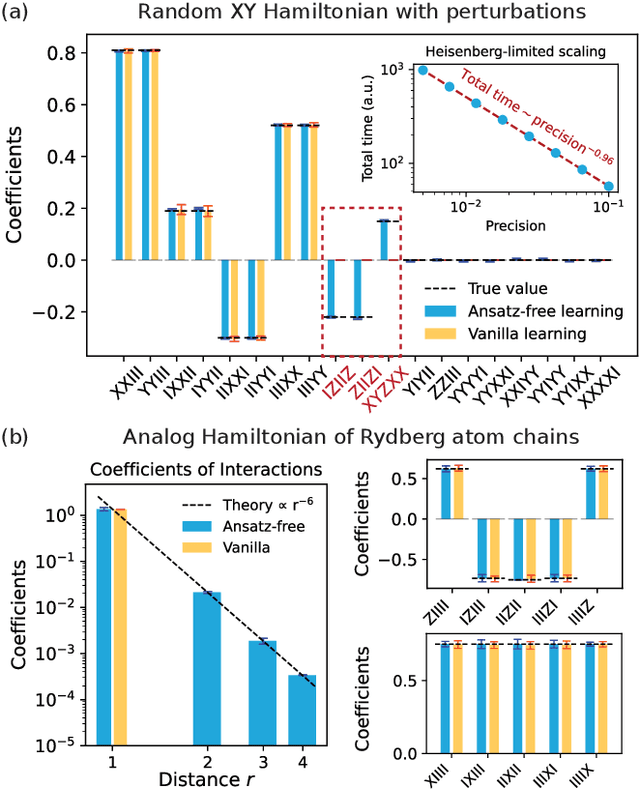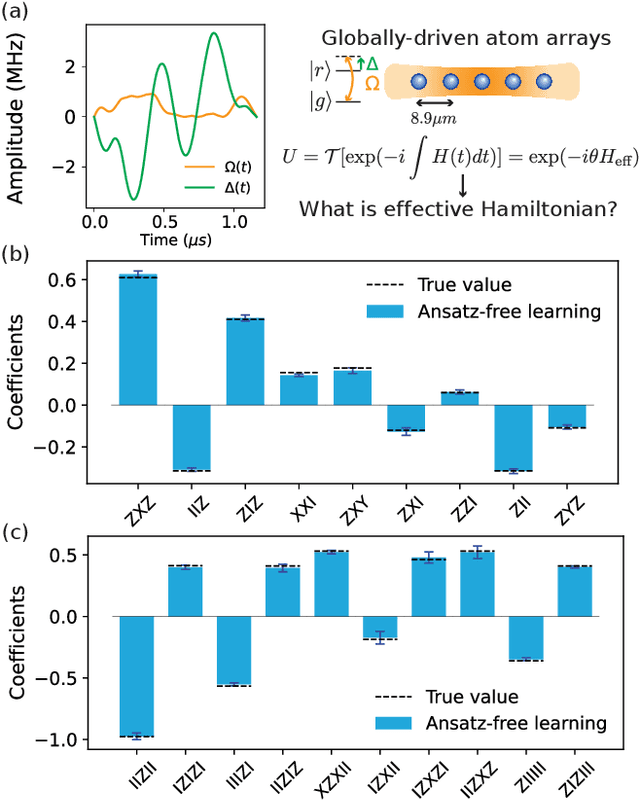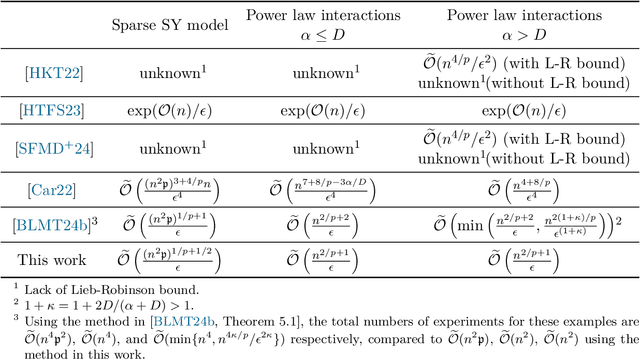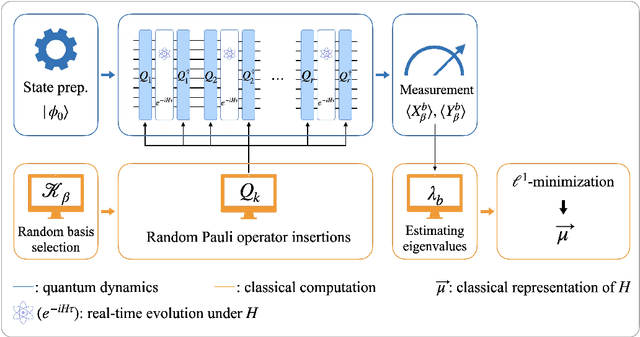Steven T. Flammia
Ansatz-free Hamiltonian learning with Heisenberg-limited scaling
Feb 17, 2025



Abstract:Learning the unknown interactions that govern a quantum system is crucial for quantum information processing, device benchmarking, and quantum sensing. The problem, known as Hamiltonian learning, is well understood under the assumption that interactions are local, but this assumption may not hold for arbitrary Hamiltonians. Previous methods all require high-order inverse polynomial dependency with precision, unable to surpass the standard quantum limit and reach the gold standard Heisenberg-limited scaling. Whether Heisenberg-limited Hamiltonian learning is possible without prior assumptions about the interaction structures, a challenge we term \emph{ansatz-free Hamiltonian learning}, remains an open question. In this work, we present a quantum algorithm to learn arbitrary sparse Hamiltonians without any structure constraints using only black-box queries of the system's real-time evolution and minimal digital controls to attain Heisenberg-limited scaling in estimation error. Our method is also resilient to state-preparation-and-measurement errors, enhancing its practical feasibility. Moreover, we establish a fundamental trade-off between total evolution time and quantum control on learning arbitrary interactions, revealing the intrinsic interplay between controllability and total evolution time complexity for any learning algorithm. These results pave the way for further exploration into Heisenberg-limited Hamiltonian learning in complex quantum systems under minimal assumptions, potentially enabling new benchmarking and verification protocols.
Learning $k$-body Hamiltonians via compressed sensing
Oct 24, 2024

Abstract:We study the problem of learning a $k$-body Hamiltonian with $M$ unknown Pauli terms that are not necessarily geometrically local. We propose a protocol that learns the Hamiltonian to precision $\epsilon$ with total evolution time ${\mathcal{O}}(M^{1/2+1/p}/\epsilon)$ up to logarithmic factors, where the error is quantified by the $\ell^p$-distance between Pauli coefficients. Our learning protocol uses only single-qubit control operations and a GHZ state initial state, is non-adaptive, is robust against SPAM errors, and performs well even if $M$ and $k$ are not precisely known in advance or if the Hamiltonian is not exactly $M$-sparse. Methods from the classical theory of compressed sensing are used for efficiently identifying the $M$ terms in the Hamiltonian from among all possible $k$-body Pauli operators. We also provide a lower bound on the total evolution time needed in this learning task, and we discuss the operational interpretations of the $\ell^1$ and $\ell^2$ error metrics. In contrast to previous works, our learning protocol requires neither geometric locality nor any other relaxed locality conditions.
Foundations for learning from noisy quantum experiments
Apr 28, 2022
Abstract:Understanding what can be learned from experiments is central to scientific progress. In this work, we use a learning-theoretic perspective to study the task of learning physical operations in a quantum machine when all operations (state preparation, dynamics, and measurement) are a priori unknown. We prove that, without any prior knowledge, if one can explore the full quantum state space by composing the operations, then every operation can be learned. When one cannot explore the full state space but all operations are approximately known and noise in Clifford gates is gate-independent, we find an efficient algorithm for learning all operations up to a single unlearnable parameter characterizing the fidelity of the initial state. For learning a noise channel on Clifford gates to a fixed accuracy, our algorithm uses quadratically fewer experiments than previously known protocols. Under more general conditions, the true description of the noise can be unlearnable; for example, we prove that no benchmarking protocol can learn gate-dependent Pauli noise on Clifford+T gates even under perfect state preparation and measurement. Despite not being able to learn the noise, we show that a noisy quantum computer that performs entangled measurements on multiple copies of an unknown state can yield a large advantage in learning properties of the state compared to a noiseless device that measures individual copies and then processes the measurement data using a classical computer. Concretely, we prove that noisy quantum computers with two-qubit gate error rate $\epsilon$ can achieve a learning task using $N$ copies of the state, while $N^{\Omega(1/\epsilon)}$ copies are required classically.
 Add to Chrome
Add to Chrome Add to Firefox
Add to Firefox Add to Edge
Add to Edge